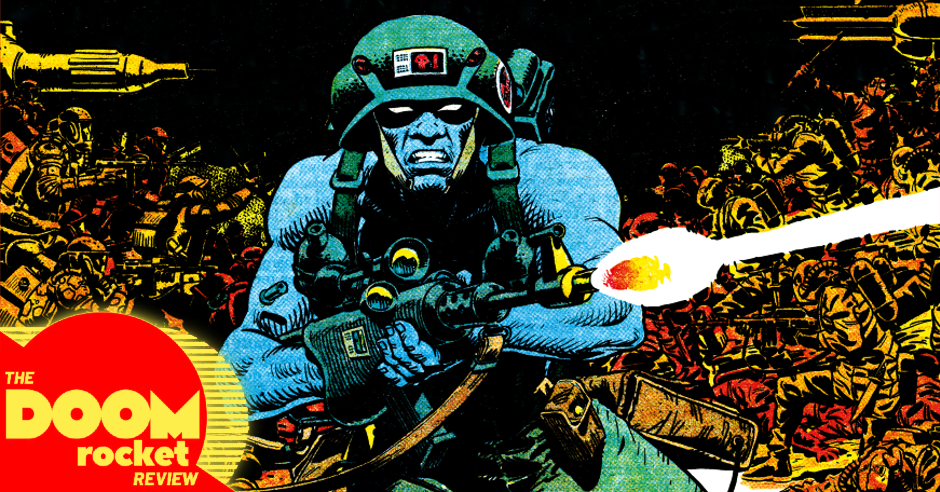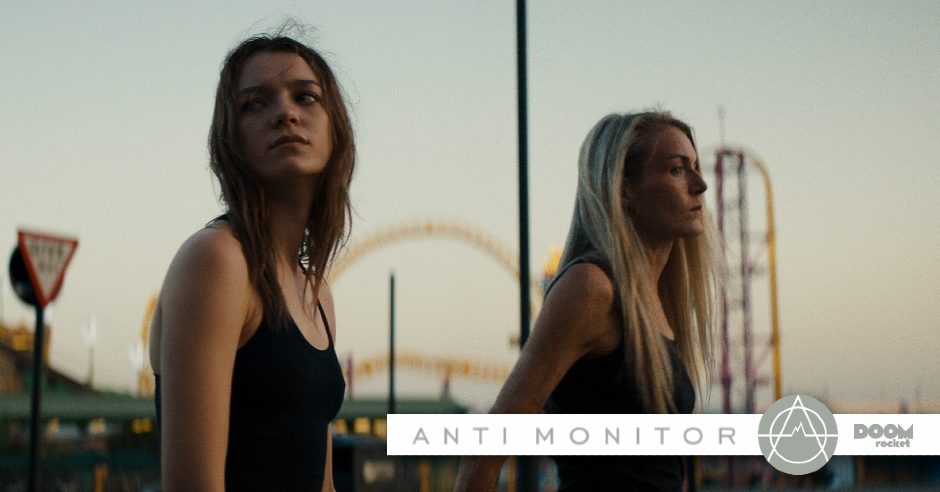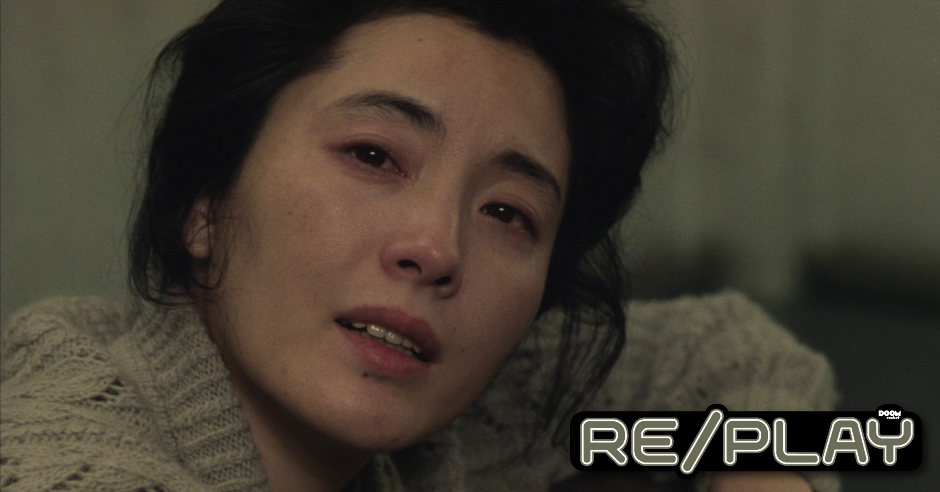THIS REVIEW OF NEPTUNE FROST IS SPOILER-FREE.
by Arpad Okay. Afrofuturism is the dream taken from a different page than the one we’re used to reading. A dream of the present. Here! Now! The dystopian horrors of tomorrow already reached us long ago. Unanimous Goldmine, there’s been time to turn the words of oppression back on themselves. It’s poetry. Music. Rebellion. Nothing is like Neptune Frost, a film written by Saul Williams, directed by Williams and Anisia Uzeyman, and nothing will be like what comes after it.
It is important to enter this lyrical vision as free from preconceptions as possible. The ideas inside deserve your interpretation and not mine. Anyway, there isn’t just one take. Neptune Frost is a human enough film to contradict itself and still tell the truth. Magical realism. There is, however, a definite underlying structure to Williams’ story, obscured by the multi-dimensional expression of its ideas. It is a river of emotion and sensation that, if you allow yourself to be carried along, reveals itself through the journey.
What the fuck is going on? Where is sense, why can’t reason be found? There is a space, lost to us, where a few dwell in safety. Memory (Eliane Umuhire). Psychology (Trésor Niyongabo). Innocent (Dorcy Rugamba), though he likes to hide in the world more than the others, much to our detriment. The hacker Neptune Frost (Elvis Ngabo, Cheryl Isheja), lost without a community but able to live a personal truth, is drawn to the place. There, they find Matalusa (Bertrand Ninteretse), lost in grief, a laborer whose brother was murdered in the mines, another wanderer who finds that sweet spot outside of society. Is the pairing of Neptune Frost and the radicalized Martyr-Loser King the connection that puts the rest of us back in touch with what we lost? This isn’t the order things play out in the movie. This might not even be what the movie was at all. This is just an account of what I saw.
A dove flies above the world, from dream to dream, a visual device that reminds me of Ali Akbar Sadeghi’s The Sun King—a film that adapts another poet, Ferdowsi. The audience, similarly freed of the yoke of the earth, gets to fly with it instead of seeing it pass from afar. The intimacy treats us to the bird of peace’s silent discourse: they are looking for a place to land and not seeing anything.
In the real world, the students riot. Flatten a mountain on one side of the world because on the other, a new phone comes out every year. People are suffering. The hand of authority that holds things in place grows increasingly malevolent. This is in the dream the movie is telling, with little but costumes to differentiate it from the lives of the film’s audience. Neptune Frost is a musical. The river is driven forward by drums and chanting and submission to the rhythm. The addition of layers that draw their context from the audience and not the plot is mysterious, irreconcilable, and uncanny—more voices harmonizing with the hymnody.
A dream, right? Opaque, evocative, radicalizing, Neptune Frost is beautiful cerebral tumult. It is cyberpunk, though not like the cyberpunk you know, as it gets its corporate technological atrocities from the present day experience instead of an imagined future fate. Williams and Uzeyman (and every other person who contributed to making the film) do not intend for you to stop feeling what they have to say when the credits are over. Neptune Frost is a call to action, but like Leon Rosselson’s “The World Turned Upside Down” (allegorical spoilers lie there, research and be compromised), this resistance song is a warning as well as a weapon. Bodily autonomy, from who we are allowed to be and love, to what we are forced to do to survive, is one struggle. When we get it together, the power turns on.
The dream is juxtaposing cyberpunk with a decolonized perspective, a vision bespoke for artist Cedric Mizero, who designed the costumes, set dressing, and props of the film. Neptune Frost achieves a look that is alien and exotic in comparison to the austere suit-and-tie standards cyberpunk is measured against, not by trading the sports-coat for a leather jacket, but by being contemporarily African.
The way Mizero reimagines traditional artworks with modern materials and vice versa works. The craft of cultural heritage has been around longer than the machines of exploitation, and hands that know can use it to fashion armor from what the powerful consider worth discarding. The result is the costuming of Iris van Herpen by way of Nick Cave (Soundsuits, not Birthday Party), basket-weave exoskeletons of painted wires. It’s a New Wave film aesthetic, authentic instead of fabricated, used to inspire awe in an audience instead of speculative fiction. So maybe in a genre cyberpunk scenario being Black is being alien to the assumed norm, but Neptune Frost is recognizing that rebellion belongs to the oppressed.
If what you see is the dream, what you hear is the river. The visions are truly, inexplicably surreal. With the sound, where you stand does not matter, it will take you with it. Saul Williams is a poet and a musician, and so his musical goes beyond breaking into song when overcome by grief, or hope. The dialog becomes intentional recitation. Like Shakespeare done right, where the lines being read fall naturally despite the articulation of their delivery. An intersex outcast and a coltan miner, both alike in dignity, in fair Burundi, where we lay our scene. A line of poetry becomes a repeated refrain, a shared chant then passed between solo singers, only to melt away in a digital fizzle wash of synthesizers.
Williams’ voice as a songwriter shows itself despite his multi-genre, multi-discipline approach to making music. Bombastic drums that feel like his collaboration with Trent Reznor. Vulnerability in the throat, sad and urgent, reminiscent of his performance from the catacombs beneath Paris in The Stone Bench. Though there are many voices joined together to make the music Saul Williams composed for Neptune Frost, the notes are written in his key. The music is a current that will not let the film rest. The songs and themes swell and recede, flash a cryptic smile. Unanimous Goldmine.
Directed by Saul Williams and Anisia Uzeyman.
Written by Saul Williams.
Produced by Saul Williams, Anisia Uzeyman, Ezra Miller, and Maria Judice.
Starring Elvis Ngabo, Cheryl Isheja, Bertrand Ninteretse, Dorcy Rugamba, Eliane Umuhire, Trésor Niyongabo, Rebecca Mucyo, and Eric Ngangare.
Not Rated.











